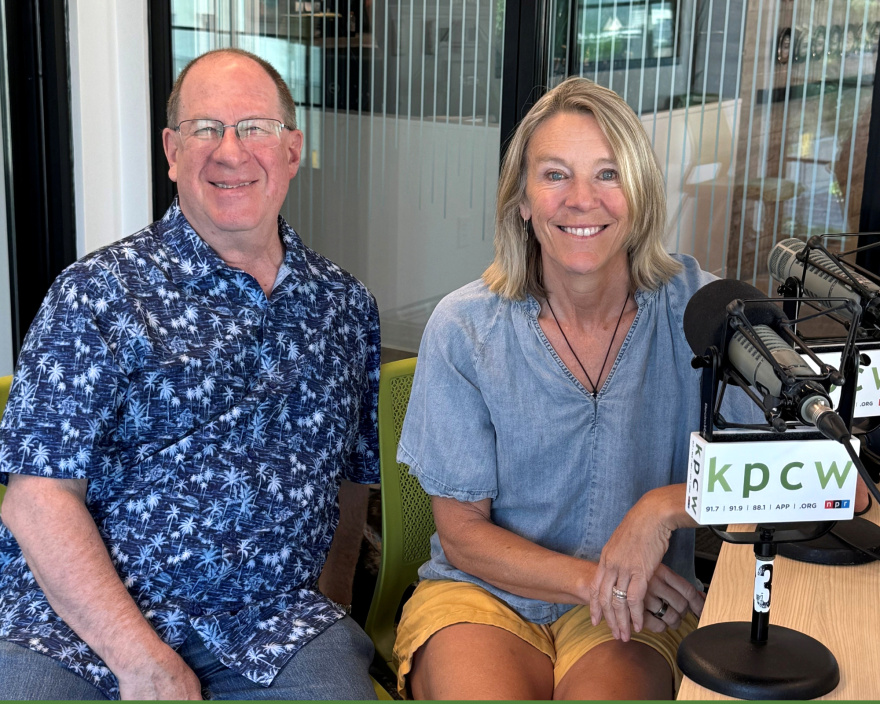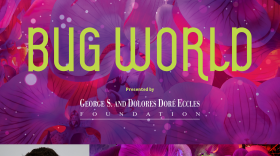
Cool Science Radio is a weekly, hour-long program that focuses on the latest developments and discoveries in the fields of science and technology. Co-hosts Lynn Ware Peek and Scott Greenberg decipher what's new with science and technology experts in an entertaining, amusing and accessible way.

From the discovery of new dinosaurs to the science of an avalanche, from the secret technology behind Facebook, to the latest developments in nanotechnology — Cool Science Radio hosts Lynn Ware Peek and Scott Greenberg decipher science and technology discoveries in an entertaining, amusing and accessible way. If they can understand it, so can you.
Cool Science Radio is sponsored by:
For questions and inquiries, or to inquire about appearing on the show, contact the hosts directly at coolscienceradio@kpcw.org.
-
In this episode, geologist-turned-writer Evan Howell discusses his High Country News article exploring the surprising scientific link between the Grand Canyon and Meteor Crater in northern Arizona.
-
In this episode, University of Utah geologist Thure Cerling discusses research showing that lead exposure has dropped dramatically over the past century — and the proof is preserved in human hair.
-
University of Utah geologist William Johnson discusses the discovery of a hidden, pressurized freshwater aquifer beneath the Great Salt Lake and what it could mean for dust control and the lake’s future.
-
Economist science correspondent Matt Kaplan discusses his new book, “I Told You So!,” and the scientists who were ridiculed, sidelined or punished for advancing ideas that later proved correct.
-
NHMU executive director and entomologist Jason Cryan highlights Bug World, a new blockbuster exhibition opening at the Natural History Museum of Utah. Built by the special effects studio behind “The Lord of the Rings” and “Avatar,” the exhibition brings the hidden genius of insects to life at a jaw dropping scale.
-
University of Chicago professor Eric Oliver explores what it actually means to know yourself, and why so many people feel quietly dissatisfied even when life seems fine.
-
Tune into Cool Science Radio Thursday at 9am. Scott and Lynn speak with:University of Utah geologist Thure Cerling discusses research showing that lead exposure has dropped dramatically over the past century — and the proof is preserved in human hair.Then, geologist-turned-writer Evan Howell discusses his High Country News article exploring the surprising scientific link between the Grand Canyon and Meteor Crater in northern Arizona.Thursday at 9am
-
University of Utah geologist William Johnson discusses the discovery of a hidden, pressurized freshwater aquifer beneath the Great Salt Lake and what it could mean for dust control and the lake’s future. (0:58)Then, economist science correspondent Matt Kaplan discusses his new book, “I Told You So!,” and the scientists who were ridiculed, sidelined or punished for advancing ideas that later proved correct. (26:32)
-
NHMU executive director and entomologist Jason Cryan highlights Bug World, a new blockbuster exhibition opening at the Natural History Museum of Utah. Built by the special effects studio behind “The Lord of the Rings” and “Avatar,” the exhibition brings the hidden genius of insects to life at a jaw dropping scale. (1:18)Then, University of Chicago professor Eric Oliver explores what it actually means to know yourself, and why so many people feel quietly dissatisfied even when life seems fine. (26:04)
-
Author and science historian Oren Harman explores why metamorphosis is one of biology’s greatest mysteries, and what radical transformation can teach us about identity, survival, and change. Then, author and professor emeritus Christopher Cokinos explores the moon’s enduring pull on human imagination, science and culture in his book "Still as Bright: An Illuminating History of the Moon, from Antiquity to Tomorrow."
-
Neurobiologist Dr. John Medina is a developmental molecular biologist, and bestselling author of Brain Rules, where he translates cutting-edge neuroscience into practical insights about learning, memory, focus, and everyday life. Then, Dr. Vanessa Chang explores how human bodies and technologies have always shaped one another, and why intelligence must be understood as embodied, relational, and deeply human.







